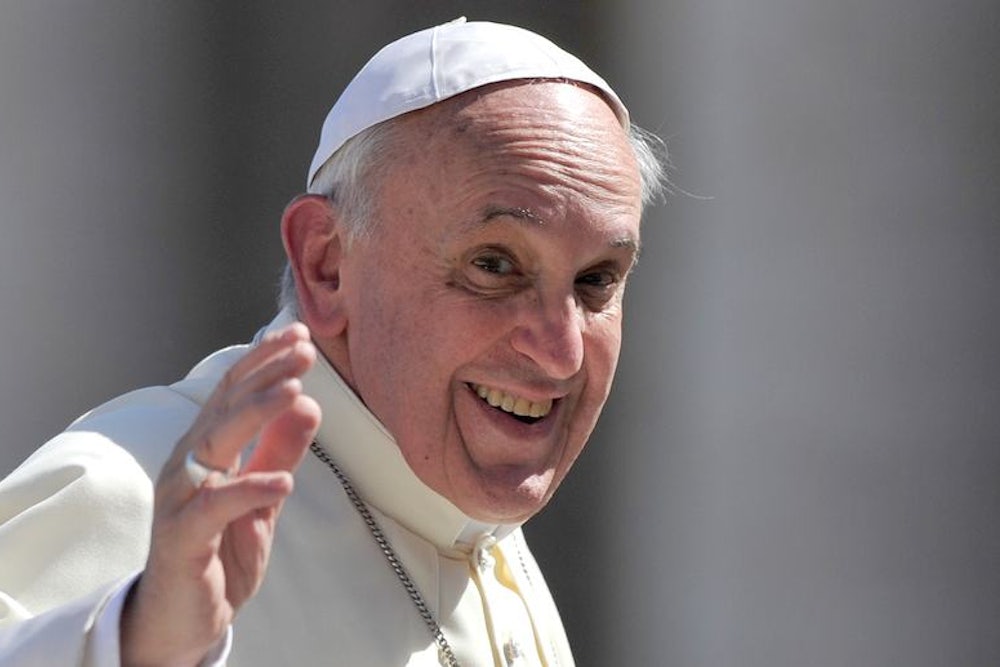It’s a sign of how cramped the public image of the Roman Catholic Church has become over the past 34 years that Pope Francis’s comments in an extensive interview with La Civiltà Cattolica could spark such a rapturous response from progressive Catholics. Yes, Francis said the church has become “obsessed” with denouncing abortion, homosexuality, and contraception. And yes, he called for a “new balance” in the church’s teaching so that it doesn’t lose “the freshness and fragrance of the gospels.” But however much those remarks signal a shift from the rhetorical style of popes John Paul II and Benedict XVI, progressive Catholics need to understand that the change is, and is likely to remain, a matter of words.
Consider what the pope did not say. He didn’t say that homosexual acts are morally permissible. He didn’t say that abortion can be morally acceptable in certain (or any) circumstances. He didn’t say anything to indicate he was interested in revisiting Pope Paul VI’s 1968 reaffirmation of the church’s ban on artificial contraception. He didn’t imply that he’s interested in revising the church’s strictures against married priests. He certainly didn’t indicate an openness to permitting the ordination of women. The interview contains no sign that the pope is willing to budge on any of the items on the progressive Catholic wish-list of reforms.
What the pope did say, in effect, is that in recent years the church has been focusing too single-mindedly on policing sex. He didn’t say anything to imply that he disagreed with or hoped to change any of the church’s sexual teachings. He just wants to place them in a broader context. Catholicism preaches a gospel of human dignity and salvation—that, and not a creepy sexual surveillance, must come first. This is especially true if the church hopes to enjoy any success with a “new evangelization” of the Western world.
As I recently argued, rhetoric is important in the history and life of the church—especially when it takes the form of a rebuke of outspoken lay and clerical critics. (Bishop Thomas Tobin of Providence, Rhode Island, spoke for many conservatives when he recently described himself as “a little bit disappointed” that the new pope hadn’t addressed “more directly the issue of abortion.” Today’s interview is Francis’s response to this view.)
Still, words remain mere words when they are unaccompanied by action—and this is something progressive Catholics need to keep in mind as they respond to the new pope. Francis hasn’t changed a single doctrine or dogma of the church, and he’s exceedingly unlikely to. By all means, reform-minded Catholics should rejoice when the pope changes the rhetorical emphasis of the Vatican. But a "revelation"? Get a grip.
